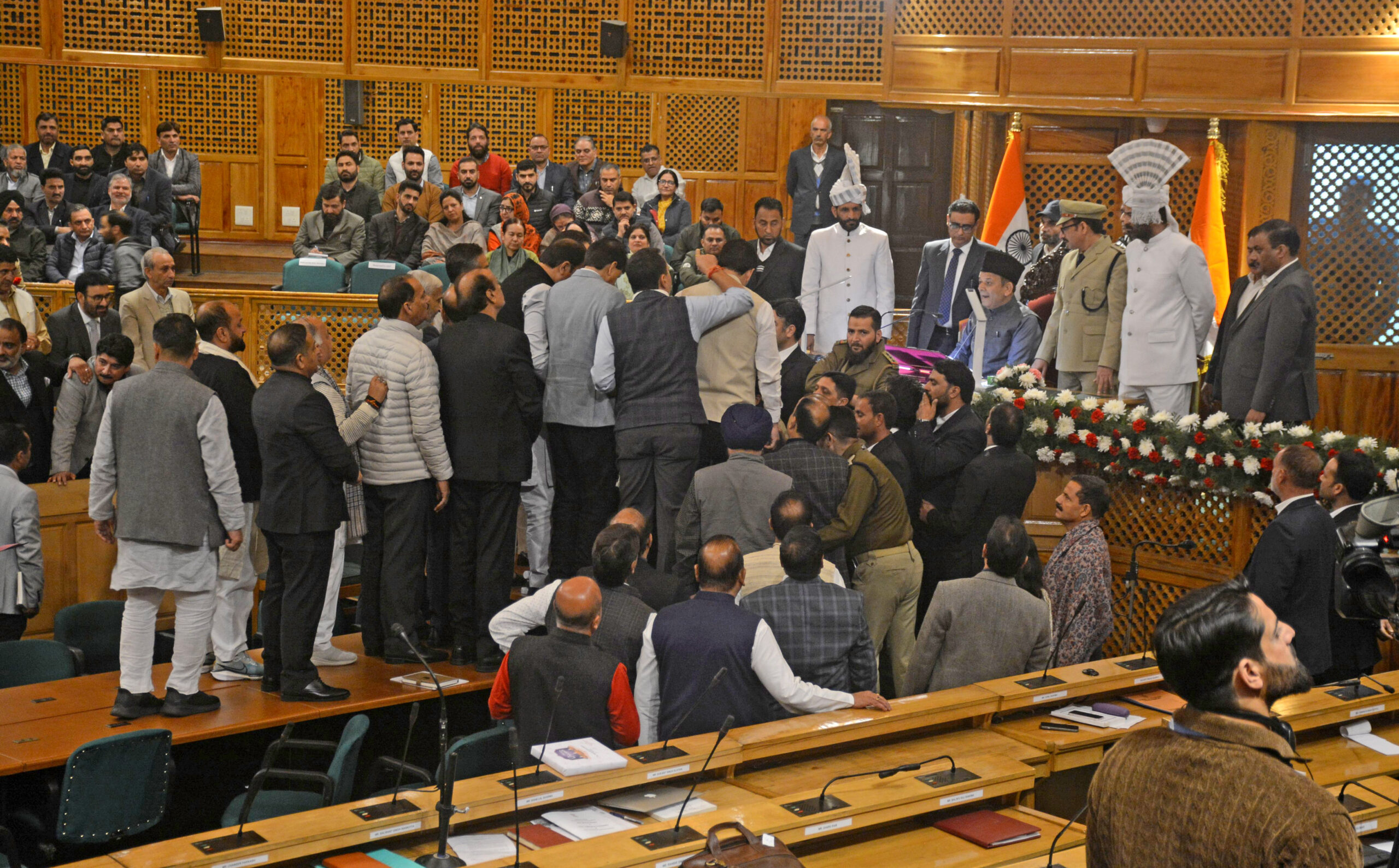SAQIB ALI
Laharwalpora, a small village in the Bandipora district by the Wular lake, has gone through big changes in recent years. People in this village were used to make living by collecting lotus stems and chestnuts from the lake. But now, the water levels have dropped, and the lakebed has turned into sand.
One of the largest lakes in Asia, the Wular lake has shrunk to nearly half of its original area in the last few decades due to extensive pollution, siltation and encroachment. The lake covered an area of 217.8 sq. km which included 58 sq. Km of associated marshes in 1911. From 1911 to 2007 the area has reduced to 86.71 sq. Km. As for now the area has shrunk to 75 sq. Km.
With fewer aquatic resources available, the villagers have turned to sand extraction as their main source of income. Unemployment has left many with no choice but take up this hard work, including children who should be in school. The village also faces different challenges. The water supply is poor, making daily life difficult.
“We used to sell chestnut in winter season and that money was helping us to sustain in Summer but this year the business has been all-time low,” says Ahmad. The rising temperature in summers and winters and less rainfall has had an immense impact on the water of Wular lake.
With no alternative income source, the fisherman’s community which used to rely on the lake, now seek alternative employment. Ghulam Hassan Bhat, president of Mahigeer Association Bandipora, said, “The fish are invisible in Wular Lake. The chestnuts sit on the edges of the lake due to the low water level; some are eaten by birds, and some are spoiled.”
The local school’s poor infrastructure and a lack of teaching staff, fail to provide enough education. This lack of proper education forces many children to join the sand extraction efforts instead of attending school. Without access to quality education and employment opportunities, the cycle of poverty and labour remains persistent.
Shabir (name changed), teacher at Laharwalpora Govt. Middle school, says, “Due to poor infrastructure, children don’t come to school. We try our best to make studying more interesting, but the children don’t seem to be interested. Their family members are labourers and make them participate in labour from childhood.”
Sand extraction from the Wular lake supports Laharwalpora’s inhabitants, but the government has imposed a ban on the illegal extraction done by local people. While extraction occurs in specific areas without damaging the ecosystem, it helps dredge the lake and supports local livelihoods. However, the restrictions imposed by the government on this activity is threatening the people’s income and livelihood. There is also significant risk involved in sand extraction. On January 28, 2022, two brothers from the fishing community lost their lives while extracting sand.
The unemployment rate in Jammu and Kashmir has declined from 6.7 percent in 2019-21 to 5.2 percent in 2021-2022, according to a report by the Ministry of Statistics and Programme Implementation (MoSPI).
“I hold a master’s degree, but because of unemployment, I was forced to take up this work. I now drive this tractor to support both myself and my family, as I am the only child. It’s a tough situation, but it’s the only way I can make a living,” says Tauseef.
Representational Image



